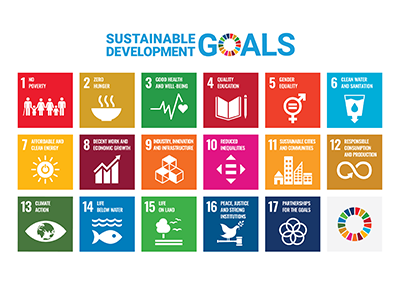Furukawa Electric Joins the World Intellectual Property Organization’s “WIPO GREEN” Platform
- Expanding the use of environmental technology for upcycling difficult-to-recycle material “PolyAl” -
- Joined the WIPO GREEN platform for the exchange of technology concerning environmental preservation as a partner company.
- Registered on WIPO GREEN recycling technology for “PolyAl”, a difficult-to-recycle combination of polyethylene, paper, and aluminum.
- Expanding the use of environmental technology using Furukawa’s intellectual property.
Furukawa Electric Co., Ltd. (Head office: 2-6-4 Otemachi, Chiyoda-ku, Tokyo; President: Keiichi Kobayashi) has joined the WIPO GREEN(note 1) platform for the exchange of technology concerning environmental preservation operated by the United Nation’s World Intellectual Property Organization (WIPO) as a partner company. We have registered plastic recycling technology on WIPO GREEN and are contributing to the expanded use of environmental technology.
Background
In response to the increasingly severe abnormal weather events caused by climate change in recent years and the problem of ocean plastic pollution, we set forth Furukawa Electric Group’s ‘Environmental Vision 2050’ in 2021 and are strengthening the efforts to “develop business activities that consider climate change” and “create environmentally friendly businesses”, which have been designated important management issues in Furukawa Electric Group’s ‘Vision 2030’.
Since 1990, Furukawa Electric has actively worked to use recycled materials including cable waste and plastic packaging and containers. In 2019, Furukawa Electric developed a single-process technology for upcycling difficult-to-recycle disposable plastic products and wastepaper into reinforced plastic. Cellulose Fibre, the main component of paper, and plastic typically do not blend well, but when uitilising Furukawa Electric’s Advanced Paper Fibre Upcycling (APFU) technology to break down the paper into loose cellulose fibers while blending it with plastic, it is possible to upcycle these materials into plastic with about twice the strength as the original plastic. With the aim of expanding the use of this technology, we are partnering with government agencies in Japan and abroad, as well as the plastic and recycling industries.
Details
In support of the goals of WIPO GREEN, we have registered the plastic recycling technology patents European Registered Patent No. 3441425, European Published Patent No. 3549980 and Japan Patent No. 6606296 on the WIPO GREEN database. These patents are related to technology for obtaining resin composite material (raw material for resin products) with uniform, good physical properties when recycling PolyAl(note 2). The resin composite material obtained has high suitability for extrusion molding and injection molding, and the resin products manufactured through such molding have excellent characteristics including strength. Utilizing the technology in these patents will resolve the unique difficulties faced when recycling PolyAl(note 3) and greatly contribute to reducing waste.
Furukawa Electric Group has designated intellectual property an important management resource and the utilizing of intellectual property as a basic policy of the group. Going forward, we will contribute to achieving our Corporate Philosophy “realization of a sustainable society” by expanding the use of our environmental technology ‘APFU’ through the WIPO GREEN database and network.
(note 1)WIPO GREEN was established by the World International Property Organization (WIPO) in 2013 to support global initiatives for climate change by connecting companies and individuals involved in environmental technology innovation through a database and network. WIPO GREEN promotes innovation in environmental technology and contributes to initiatives in developing countries for global issues including climate change, food safety and security and the environment.
WIPO GREEN
(note 2)PolyAl is the term used for the material that is left over when recycling paper beverage cartons into recycled paper. It is mainly polyethylene but also contains paper and aluminum when collecting after using. As a result, this material has typically been disposed of by incineration or into landfills.
(note 3)During the process of recycling paper beverage cartons into recycled paper, it is necessary to separate the paper component (pulp) from the other materials (polyethylene film, aluminum film), and this separation process results in PolyAl with an extremely high moisture content. In order to reuse this wet PolyAl, it needs to be sufficiently dried first, requiring a large amount of energy.
Related News Releases
Regenerating Difficult-to-recycle Plastic Waste into Consumer Goods
Formulation of the “Furukawa Electric Group Environmental Vision 2050”
Related Video
Furukawa Electric Group’s efforts towards the SDGs
Based on the “Sustainable Development Goals (SDGs)” adopted by the United Nations, the Furukawa Electric Group has formulated the “Furukawa Electric Group Vision 2030” which sets the year 2030 as its target and is advancing efforts with the aim to “Build a sustainable world and make people’s life safe, peaceful and rewarding, Furukawa Electric Group will create solutions for the new generation of global infrastructure combining information, energy and mobility.” Toward the achievement of our Vision 2030, we will take open, agile, and innovative approaches to promote ESG management that that aims to increase corporate value over the medium to long term and will contribute to the achievement of the SDGs.









 Share
Share Tweet
Tweet Share
Share